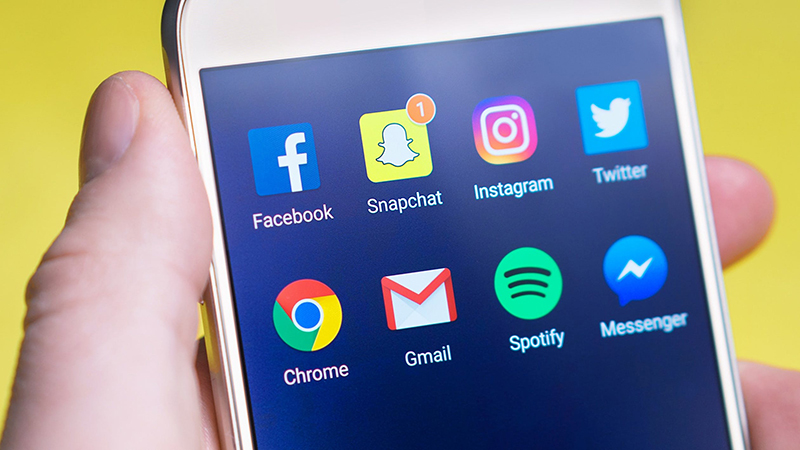
By Marketing and Communications Coordinator, Dante Massey
One of the most complicated phenomena we face today is the use of social media. It is a tool that can bring a lot of positives to our lives through overall connection and knowledge but is not without its negatives.
The social media movement took off with Myspace in 2003 followed by Facebook the next year. From then on, society has had a dependency on social media, from how we get our news to interacting with friends and family.
According to an article by researchers at Harvard University, “Platforms like Facebook, Snapchat, and Instagram leverage the very same neural circuitry used by slot machines and cocaine to keep us using their products as much as possible.” (Trevor Haynes/Harvard University – Dopamine, Smartphones & You, 2018)
Research in the National Library of Medicine revealed that people who used social media the most were about 2.7 times more likely to be depressed than participants who used social media the least. (Depression and Anxiety Journal – University of Pittsburgh, 2016)
Another study facilitated by the University of Pennsylvania had 143 students separated in to two groups. One group used social media as much as they normally would and the other was limited to 30 minutes of social media use per day: 10 minutes per platform (Facebook, Instagram and Snapchat). The study found that the group who used social media less often had better mental health outcomes in areas such as loneliness, anxiety and depression. (Melissa G. Hunt, Rachel Marx, Courtney Lipson, and Jordyn Young/University of Pennsylvania – No More FOMO, 2018)
One of the major reasons why social media is affecting us negatively is because it continually exposes us to people who seem to be operating in better and more prosperous situations than we are. When we develop these perceptions, we are more likely to feel jealous or envious.
If we don’t realize that these “online personas” are not always based in reality, then we run the risk of becoming too critical of ourselves and self-worth and begin to want everything we don’t have.
Anyone can benefit from cutting back social media use, especially children and teens who are still in a developmental phase of their lives. In the same way that screen time should be managed and limited, social media should be too. Parents should keep an ongoing dialogue with children and teens to help them understand the superficial aspects of social media and all of the repercussions of overuse.
Anchorpoint’s pediatric counseling services can help children and teens who are struggling managing their screen time.
If you or someone you know is suffering from loneliness, anxiety or depression, give us a call at 412-366-1300 to schedule an appointment today! Hope is only a phone call away.
